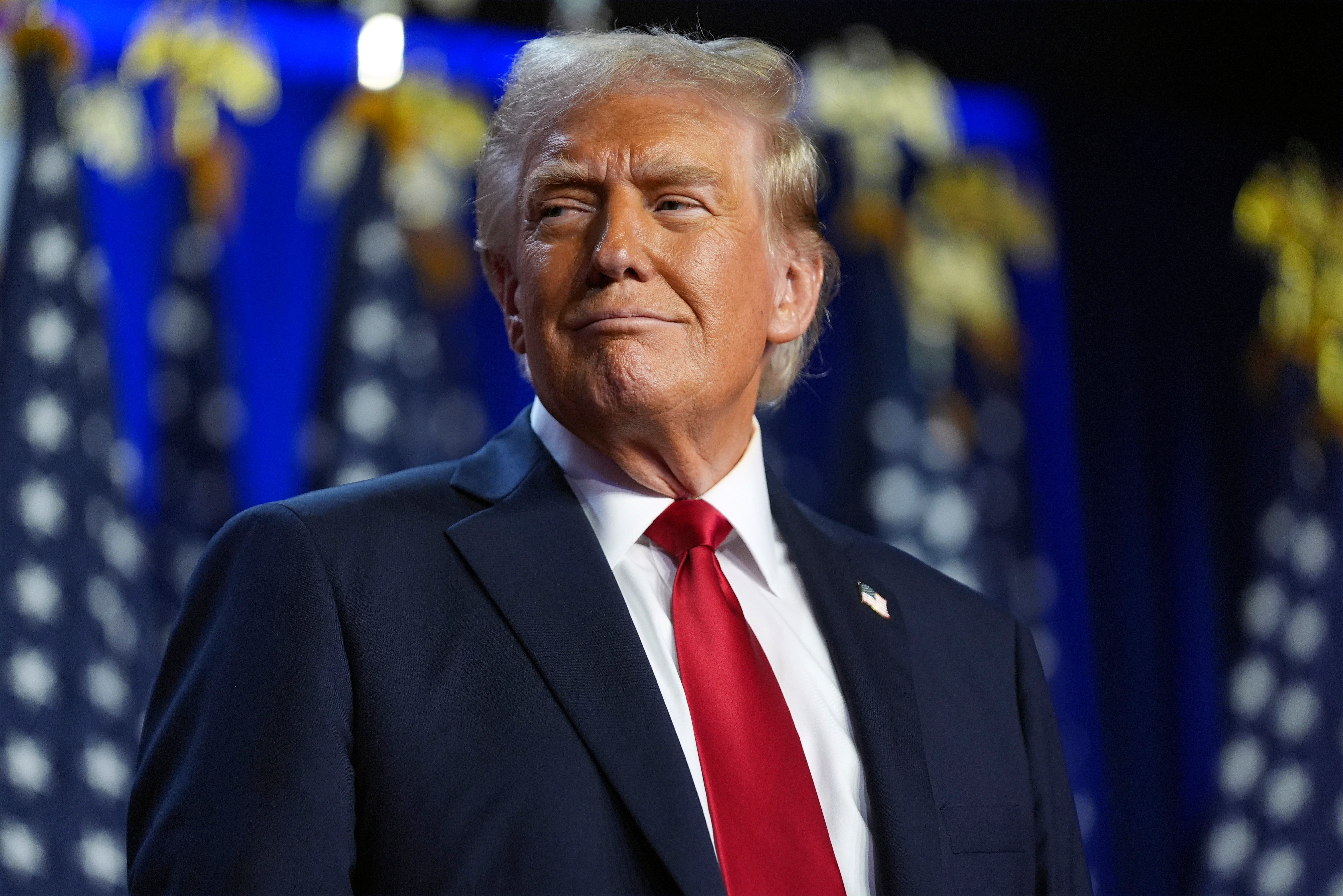Climate scientists fear Trump will destroy progress in his second term

Your support helps us to tell the story
From reproductive rights to climate change to Big Tech, The Independent is on the ground when the story is developing. Whether it’s investigating the financials of Elon Musk’s pro-Trump PAC or producing our latest documentary, ‘The A Word’, which shines a light on the American women fighting for reproductive rights, we know how important it is to parse out the facts from the messaging.
At such a critical moment in US history, we need reporters on the ground. Your donation allows us to keep sending journalists to speak to both sides of the story.
The Independent is trusted by Americans across the entire political spectrum. And unlike many other quality news outlets, we choose not to lock Americans out of our reporting and analysis with paywalls. We believe quality journalism should be available to everyone, paid for by those who can afford it.
Your support makes all the difference.
Following the re-election of former President Donald Trump, the nation’s top climate scientists are voicing their concerns about his impending second term and how it could shape humanity’s future in a rapidly warming world.
“As I stated before the election, a second Trump term, which includes implementation of ‘Project 2025,’ is the end of climate action as we know it, this decade,” Dr. Michael E. Mann, the director of the Center for Science, Sustainability, & the Media at the University of Pennsylvania, told The Independent in an emailed statement on Tuesday.
“And if he dismantles our Democracy, as many fear will be the case, and the world’s greatest power, the U.S. becomes— in essence — a petrostate, it’s game over climate action full stop.”
“I imagine we’ll be able to read these election results in the geological record millennia from now,” said author and Third Act founder Bill McKibben.
This year has seen record-breaking temperatures, in our oceans and on land. It is likely to be the warmest year in recorded history, knocking down 2023 from the top spot. With this warming have come other extreme events made more likely and worsened by climate change, including devastating and widespread flooding across the globe and the hurricanes that decimated the Southeast earlier this fall. Another hurricane, Rafael, is forecast to bring impacts to the Gulf Coast later in the week. Recently, scientists warned that the world is on track for a “catastrophic” rise in temperatures. They warned a previous threshold set at the 2015 Paris Agreement will “soon be dead” without an unprecedented global mobilization to limit climate change.
During his first term, Trump pulled out of the agreement. He also rolled back more than 100 environmental regulations. In this campaign — backed by the fossil fuel companies producing greenhouse gas emissions that warm the planet — the Republican doubled down on his pledge to “drill, baby, drill.” He called climate change a hoax, and recently told voters in Wisconsin that even when sea levels rise: “Who the hell cares?” He also misrepresented its rate of rise. NASA data shows that the current rate of global average sea level rise is about an eighth of an inch each year, and not every 500 years.
In addition to being one of the world’s largest producers of greenhouse gas emissions, the Biden administration has worked toward a transition to clean energy, including ramping up electric vehicle production and passing the Inflation Reduction Act, the nation’s largest investment in climate and energy. America’s role as a climate leader is being flipped on its head less than a week before the United Nations Climate Change Conference and an effort to reach an agreement to limit dangerous climate change.
Climate scientist Kevin Trenberth, a lead author of several past reports from the Intergovernmental Panel on Climate Change, said Trump’s re-election undermines any confidence in leadership from the US.
“He is an utter disaster for addressing climate change and pulling nations together for much needed leadership on environmental matters and other topics,” he wrote in an email.
“Overall, I think the election result shows that the rest of the world has to stop waiting for the US to lead on climate. That will not happen any time in the next four years,” Naomi Oreskes, the author of Merchants of Doubt: How a Handful of Scientists Obscured the Truth on Issues from Tobacco Smoke to Global Warming, also told The Independent in an email. “So everyone in the world who cares about the issue has to think hard about how to move forward without US cooperation.”
“It’s just really hard for any country to up their ambitions at a time when the official position of the US government is that they want to pull away from climate action,” Chris Field, the Perry L. McCarty Director of the Stanford Woods Institute for the Environment, explained.

Partisan politics will likely put the US in reverse on the fight against climate change, and scientists expect Trump to pull out of the Paris Agreement once again. Biden rejoined the agreement on his first day in office.
“The US will very likely leave the Paris Agreement,” UCLA climate scientist Dr. Daniel Swain said. “Domestic policy will very much shift in a direction that favors continuing to generate a record-breaking amount of fossil fuel energy.”
“Based on both what he said during the campaign and his record when he was president, President Trump will proceed to rip down as much of that as he can. Unless, somehow, he has an amazing conversion on the climate change issue,” Princeton University Professor Michael Oppenheimer noted. He characterized the potential outcome as “grim.”
And, it will be hard for climate action to pass with a potentially Republican-controlled Senate and House of Representatives. Field pointed out that every time the White House flips, so do policies. Whereas reasonable levels of climate action need long-term investments.

“I think that everything is likely to be very different in a few years. Especially, given that it isn’t just the presidential outcome. Everything from the presidency, to Congress, to the courts, will be in lock-step alignment with doing the opposite of what we need to do to solve these problems,” said Swain.
The cost of climate change has moved people in the right direction, including production in renewable energy. Dr. Patrick Kinney, a professor of environmental health at Boston University, pointed out that it will be politically hard to turn back the clock completely on previous climate action.
“I think the US will fall behind if Trump, indeed, sort of turns his back on this new technology. And, he may not do so.”
Since yesterday, there have been calls for climate action, including support for organizing a march in Washington, D.C. The National Resources Defense Council said it would not be silenced or shaken. The Sunrise Movement called for mass movements and mobilization.
Dr. Katharine Hayhoe, chief scientist of The Nature Conservancy, said climate change is often seen by politicians as being separate from everything else and that too few people have understood how interconnected everything is to this issue.
“Everything we have comes from nature. And so, caring about nature and caring about climate — and how their destabilization is affecting our society … To care about these things, you don’t have to be a scientist or an environmentalist. And, you definitely don’t have to be from one side or the other of the political spectrum,” she said. “You literally just have to be a human being living on this planet.”




